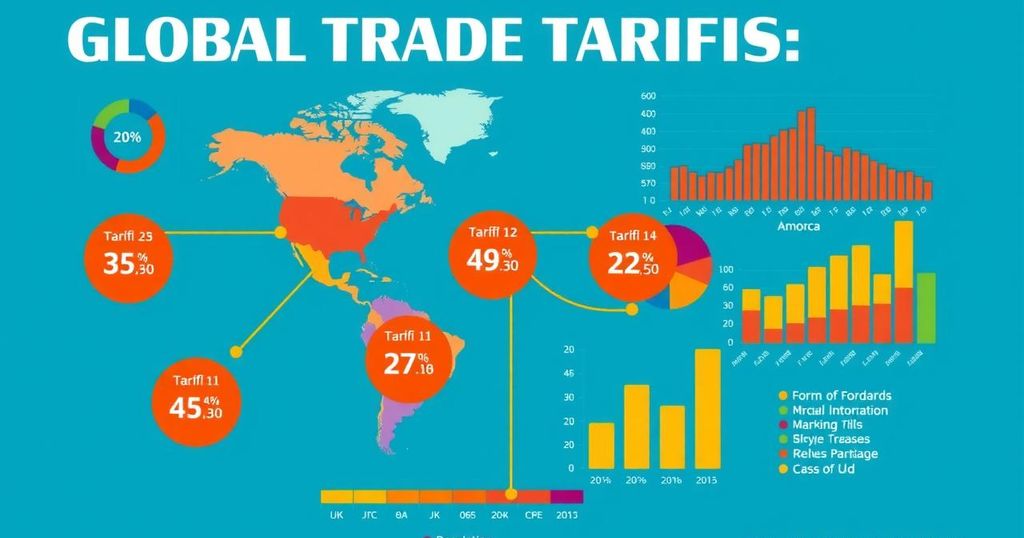Bangladesh’s military is crucial for national sovereignty and stability, particularly during the current political transition after Sheikh Hasina’s government. With efforts to undermine military credibility through disparaging social media campaigns and external narratives, the integrity of the armed forces is at risk. Political leaders and society must unite to protect the military from manipulative tactics while ensuring responsible governance to maintain national security and avoid chaos.
The military of a nation serves as the principal guarantee of its sovereignty, a fact demonstrated throughout history as nations have collapsed due to various forms of internal weakness. Bangladesh, having emerged from a tumultuous birth in 1971, has historically depended on its armed forces for both defense and political stability during crises. As the country undergoes a fragile transition post-Sheikh Hasina’s administration, the role of the army remains pivotal amid efforts, both domestic and international, to undermine it.
Recent campaigns via social media and speculative foreign press reports are aimed at diminishing public confidence in the Bangladesh Army. This erosion of trust poses a significant threat to national stability, a risk evident in historical patterns; nations rarely progress smoothly towards democracy when their military loses credibility and legitimacy. The entrenched political backlash is a strategy that Bangladesh must navigate with care to avoid the fate of similar nations.
In recent weeks, rhetoric targeting the Bangladesh Army has intensified, with accusations of military intervention in interim governance. Notably, a senior National Citizen Party (NCP) leader’s comments regarding “cantonment pressure” on political decisions ignited controversy, though even his colleagues distanced themselves from his remarks. Such rhetoric is part of a systematic endeavor to undermine military legitimacy, invoking historical parallels from countries like Turkey and Pakistan.
The fall of Sheikh Hasina’s government was anticipated to herald stability, yet it has been exploited by remnants of her regime and opportunistic political figures to create disorder. These actors seek to cultivate public distrust in the army through crises and unrest, resembling strategies employed in post-Mubarak Egypt to discredit transitional governments. This climate places the military in a precarious position, impeding its effectiveness and credibility.
Attacking the military as just another political actor normalizes a dangerous trend. When militaries become embroiled in partisan conflicts, state stability is jeopardized, as evidenced by Myanmar and Venezuela’s political histories. While accountability is essential, the current wave of attacks against the Bangladesh Army aims not for reform but for its complete disintegration, posing a grave national threat.
Further complicating matters are the narratives promoted by powerful neighboring countries. Indian media outlets have circulated unfounded reports suggesting unrest and dissent within the army, which have been robustly denied by the Inter-Services Public Relations (ISPR). Such narratives serve foreign interests by weakening the military and potentially making Bangladesh susceptible to diplomatic coercion.
To navigate this delicate situation, Bangladesh must prioritize maintaining the military’s apolitical status while reinforcing responsible governance. Political leaders and civil society must mitigate reckless accusations that damage national unity. Moreover, legal actions should be taken against those perpetuating disinformation, as national security cannot be compromised for chaotic political opportunism.
Preserving the military’s professionalism is equally crucial. By refraining from engaging in political disputes, the army can sustain its credibility as a stabilizing force. The interim administration must concentrate on bolstering civilian governance to prevent a void that could prompt military intervention, fostering a stable democratic balance necessary for the nation.
As Bangladesh confronts a crossroads, one path offers stability with a unified military respected for its neutrality, while the other leads towards chaos marked by factionalism and manipulation. The imperative to maintain a robust and cohesive military is not merely a matter of loyalty, but a pragmatic consideration for national survival, a resolve that demands immediate action to preserve this essential institution.
In conclusion, the integrity of Bangladesh’s military must be protected amid internal political struggles and external pressures. Establishing a clear separation between military and political affairs is essential for the nation’s stability and sovereignty. Reckless disparagement of the armed forces only exacerbates divisions and vulnerabilities within the state. Strengthening civilian governance and combatting disinformation are crucial steps in safeguarding the military’s role as a stabilizing force. Ultimately, a unified military is indispensable for the prolonged survival and integrity of Bangladesh as a nation.
Original Source: www.nation.com.pk




